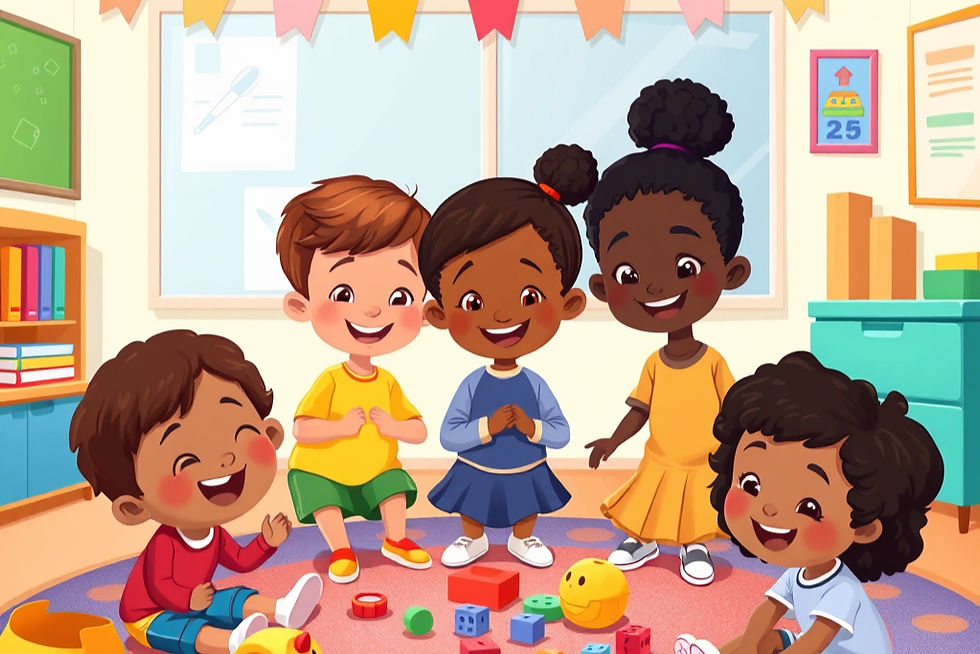The Future of Early Childhood Education: Finding Balance Between Technology and Foundational Learning
- Oct 16, 2024
- 2 min read
As technology continues to advance at a breakneck pace, it’s easy to get swept up in the excitement of digital tools and innovations in early childhood education. However, while virtual reality adventures and adaptive learning platforms offer incredible opportunities, they also risk overshadowing the fundamental, hands-on learning experiences that lay the groundwork for deep, concrete understanding.
Here’s a look at how we can navigate this technological tide while staying rooted in the core principles of early education:
1. Tech-Savvy Tots vs. Hands-On Foundations

Digital tools like VR and interactive apps are revolutionising classrooms, offering new ways to engage and educate young minds. Yet, it’s crucial to remember that these technologies should complement rather than replace the tactile experiences that build foundational skills. Sensory play, physical exploration, and hands-on activities are essential for developing a concrete grasp of concepts. Balancing tech with these traditional methods ensures learners gain both digital fluency and a strong base in core skills.

2. Emotional Intelligence: Beyond the Screen
While technology can facilitate some aspects of emotional development, it’s the real-world interactions and play-based experiences that foster genuine emotional intelligence. Future programmes should continue to prioritise activities that build empathy and resilience through face-to-face interactions and guided play, ensuring that emotional growth remains at the heart of education.
3. Play-Based Learning: The Essential Element

Play-based learning isn’t just a nostalgic throwback – it’s a proven method for developing cognitive and social skills. As we integrate new technologies, we must ensure that play remains a central element of early education. Activities that encourage creativity, problem-solving, and social interaction should coexist with digital tools, offering a well-rounded learning experience.
4. Eco-Friendly Classrooms with Real-World Engagement
Sustainability in education is crucial, but it should be rooted in hands-on, real-world experiences. Outdoor classrooms, school gardens, and environmental projects offer practical lessons in sustainability that digital tools alone cannot replicate. These experiences help learners connect with nature and understand their impact on the environment in a tangible way.


Figure 1 Photograph by Rogan Ward

5. Global Perspectives with Local Roots
While global perspectives and inclusivity are essential, they should be integrated with local, hands-on experiences that connect learners to their immediate environment. By combining global awareness with local relevance, we ensure that learners appreciate diverse cultures while grounding their learning in concrete, everyday experiences.
As we forge ahead with exciting technological advancements, let’s remember to balance innovation with the timeless principles of hands-on, playful learning. By integrating new tools with foundational practices, we can create a dynamic educational environment that nurtures both digital and real-world skills, setting the stage for a generation of well-rounded, curious learners. 🌟




Comments